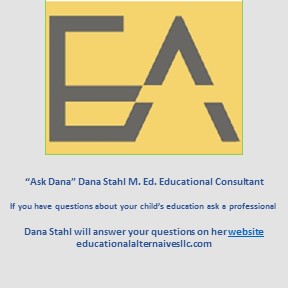Is This Your Child? Behavioral and Learning Issues Educators Observe in The Classrooms
Parents are often alarmed by the observations educators report regarding the behaviors of their children in school. It may be that your child is having an off day, but if these behaviors remain persistent, it may be time to explore what the learning issues are and how best to implement effective teaching strategies to deal with them.
Below is a list of common learning issues many children experience. Does your child have difficulty with:
- Attending to Academic Tasks – Students lose focus and begin side talks with peers. They appear to daydream and then ‘re-enter’ the classroom discussion. They are unable to transition from one part of the lesson to another. There is a visible disconnect from directions to execution of tasks.
- Academic Anxiety with Regard to Transitions – Settling into class and transitioning from one task to another can provoke uncertainty and a disconnect in the learning process. Students may present as ill-prepared for class and appear unable to begin the class period.
- Decoding Skills – Students may have difficulty sounding out unfamiliar words and reading with expression. Reading rate, accuracy, and fluency are all undeveloped, despite the student’s being capable of discerning the content of the text.
- Executive Functioning – There is difficulty planning a series of steps to solve a problem or orchestrate the initiation and completion of an assignment as well as difficulty drawing inferences and processing abstract concepts.
- Immature Social Judgment – Age appropriate social interactions with peers are undeveloped and often disruptive. The student is not able to pick up on social cues and comments.
- Organization-Time Management – There are struggles with organizing notes and papers in a notebook as well as assessing how much time an assignment will take. The student has a hard time negotiating school work independently.
- Processing Speed – Reduced productivity in completing assignments in a timely fashion is apparent.
- Reading Comprehension Skill – The student avoids reading text and has difficulty with interpretive analysis of reading material. The student also misses salient points in the text and is often unable to follow written directions.
- Working Memory – A disconnect in processing and holding onto information that is being presented becomes obvious. The student demonstrates difficulty with tasks that require internal manipulation of organization of information.
- Written Language Skills – There is difficulty relaying ideas in an organized and concise manner. Vocabulary is limited and ideas are presented in a simplistic manner. Summaries of content material are undeveloped and without direction.
Understanding the individual needs of children with learning differences begins with identifying their learning issues, being aware of the behaviors educators frequently observe in school, and working together with a specialist to help develop effective teaching strategies. Your children’s social/emotional wellbeing is contingent upon this understanding as well as the opportunity for their academic and personal success.


